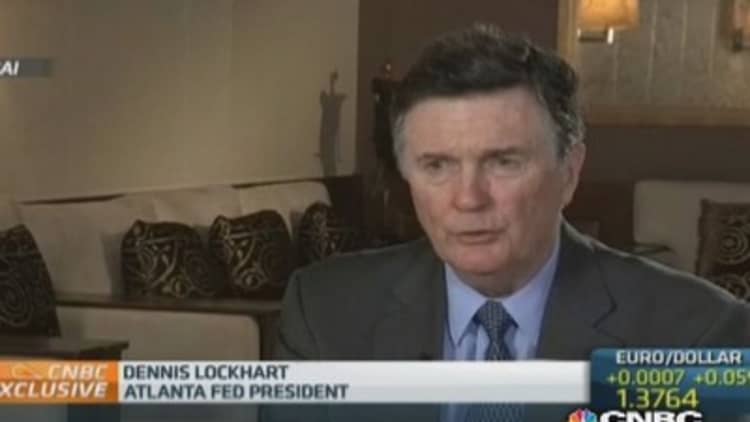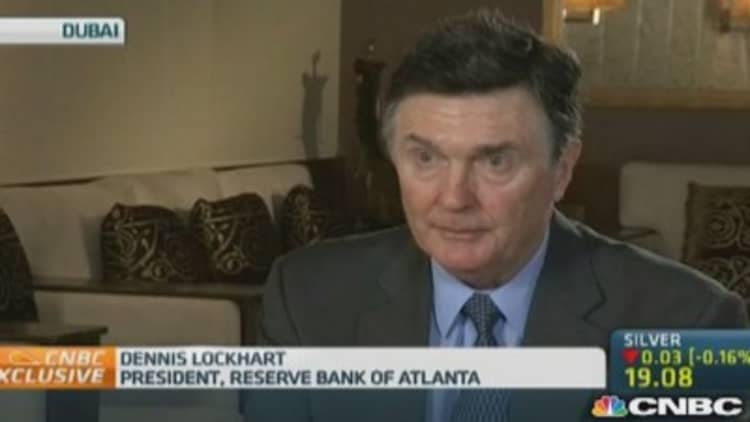Economic conditions in the United States would have to shift dramatically for the to change the rate at which it is winding down its money-printing program, a senior official at the central bank said on Tuesday.
"It would take a rather dramatic change" to adjust the tapering of the Fed's monthly bond purchases, Dennis Lockhart, president of the Federal Reserve Bank of Atlanta, said in the Saudi capital.
Read MoreSkills shortfallharms job mkt: Fed's Plosser
Echoing other recent comments by Fed officials, Lockhart also said the Fed would be likely to use a broader mix of policy tools in future, relying less heavily on the overnight federal funds rate.
Lockhart, who said he was speaking in his personal capacity, does not have a vote this year on the Fed's policy-setting board but he participates in its discussions and is considered to be near the center of its policy spectrum.
The Fed began scaling back its bond-buying program—aimed at pushing down borrowing costs—in recent months amid signs of an upturn in the jobs market.
Read MoreInflation is becoming a question of when, not if
It is currently buying $45 billion each month, a figure Lockhart said on Sunday in a speech in Dubai should fall to zero by the central bank's October or December meeting.
The Fed introduced the bond purchases as an extra stimulus on top of ultra-low overnight interest rates, which it has kept near zero since late 2008 to help the U.S. economy recover from a profound recession.

The central bank's primary tool for conducting monetary policy, the Fed funds rate measures the interest at which commercial banks lend money parked at the Fed to each other.
Lockhart told reporters that while the Fed funds rate still had a role in the policy mix, it might not be as dominant in future.
Read MoreLow inflation an 'ongoing concern': Fed's Lockhart
"There are some longer-term policy tools like term repos, term reverse repos, and term deposits, so we would neutralise excess reserves by paying a little bit more to a bank to effectively sideline their reserves for a period of time," he said.

Dallas Fed chief Richard Fisher suggested last week that the central bank could replace the Fed funds rate in the years ahead, and other tools had been tested.
The U.S. economy hardly grew in the first quarter but has gathered pace since.
Read MoreHow housing weakness may change the Fed's game
Also on Sunday, Lockhart said he expected growth to accelerate in the second quarter to an annual rate of 3 percent or more, but it might not be clear for some time if the pick-up was sustainable.
—By Reuters

